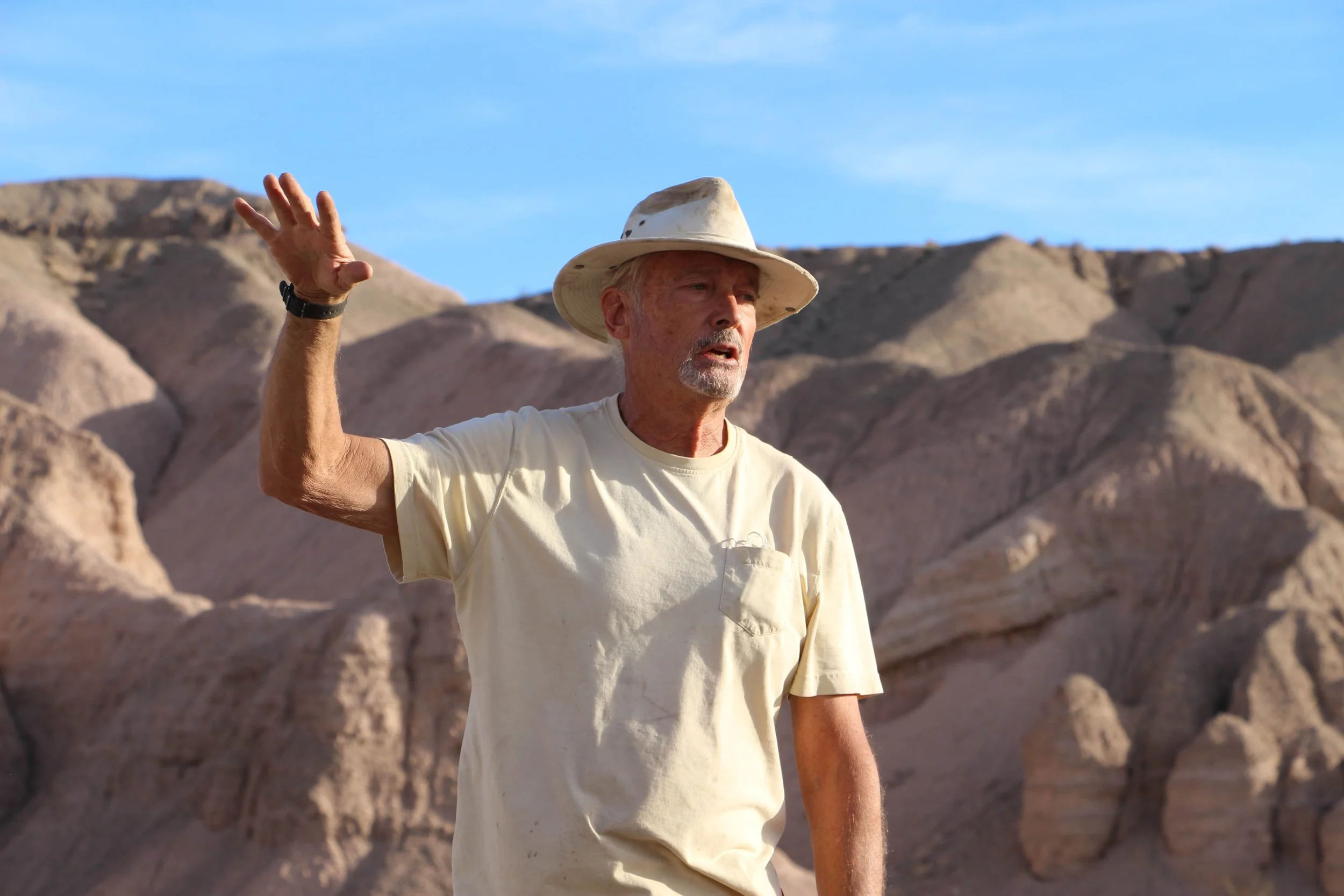Brian Brown
Owner of China Ranch
Tecopa, CA
11/18/21
Brian Brown is the owner and operator of China Ranch, a date farm and desert oasis near Tecopa, California. In the arid Death Valley, the rarity of water makes China Ranch one of few riparian areas, bursting with cottonwoods, willows, and date trees. Rich with geology, botany, birds, and a long record of human activity, China Ranch preserves the history of the Old Spanish Trail, and the wildlife that rely on the abundant water source of Willow Creek.
Brian and his late wife Bonnie bought the property and changed its course by planting many varieties of date trees and operating a business selling dates and date-related products. They made a commitment to the land and the species that rely on it through a conservation easement with the Nature Conservancy. The land is protected from further development and will be maintained into the future for a healthy ecosystem.
After a morning of cleaning up fallen palm fronds from the date trees, Brian took the Westies on a tour of his property. He talked about the impacts of a recent fire that burned over 20 acres of riparian habitat. China Ranch and the Nature Conservancy have made a commitment to restoring the burnt habitat for the many species of wildlife that find solace in one of Death Valley’s few oases.
By Haley Post


